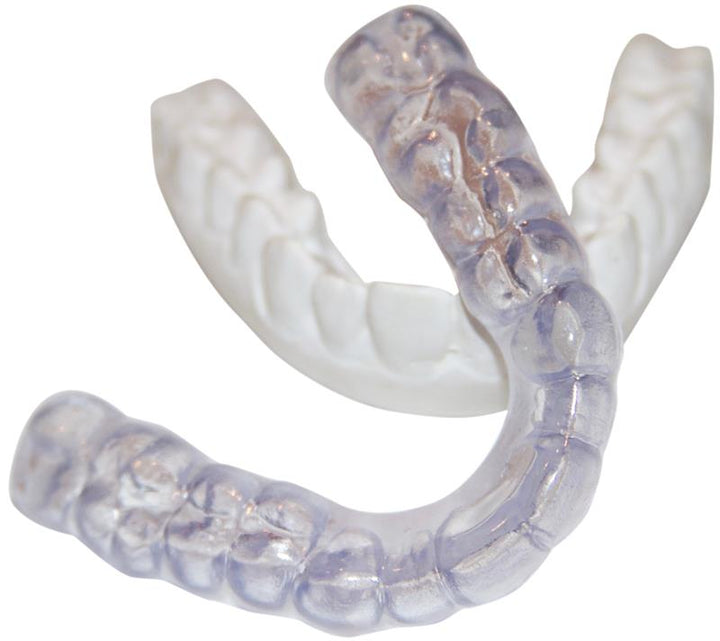Do you find yourself grinding your teeth throughout the day, especially when you're feeling stressed or anxious? Are you also someone who struggles with ADHD symptoms like hyperactivity and impulsivity? If so, there may be a surprising connection between these two seemingly unrelated issues. In this blog post, we'll explore how teeth grinding and ADHD are linked and what steps you can take to alleviate both symptoms. So sit back, relax (and maybe put in a mouthguard), as we dive into this fascinating topic!
Introduction to Teeth Grinding and Teeth Clenching
Teeth grinding, also called bruxism, is a condition in which you clench your teeth or gnash them back and forth. This can happen during the day or at night. Many people do it during times of stress. It’s usually not a serious problem, but it can be annoying and cause headaches.
Teeth clenching is similar to teeth grinding, but it’s not as forceful. You might clench your teeth when you’re angry, anxious, or concentrating hard on something.
Most people who grind their teeth or clench their jaw don’t have any other medical conditions. But if you have attention deficit hyperactivity disorder (ADHD), you might be more likely to grind your teeth or clench your jaw.
Symptoms of Teeth Grinding and Teeth Clenching
There are a few key symptoms to look out for if you think you or your child may be grinding their teeth or clenching their jaw. Teeth grinding (bruxism) can cause a great deal of damage to teeth, so it's important to seek help if you think this may be occurring. Common symptoms of teeth grinding and clenching include:
-Waking up with a headache or sore jaw
-Tooth sensitivity or tooth pain
-Damage to the inside of the cheek from teeth grinding
-Worn-down teeth, which may appear flattened or have sharp edges
If you notice any of these symptoms, please make an appointment with your dentist right away. They will be able to help diagnose the problem and recommend treatment options.
Possible Causes of Teeth Grinding and Teeth Clenching
There are a number of possible causes of teeth grinding and teeth clenching. One possibility is that it may be a side effect of certain medications. Another possibility is that it may be caused by stress or anxiety. It is also possible that it may be a result of an underlying medical condition, such as ADHD.
The connection between Teeth Grinding, Teeth Clenching, and ADHD
There is a strong connection between teeth grinding, teeth clenching, and ADHD. People with ADHD are more likely to grind their teeth or clench their jaw than people without ADHD. This may be because people with ADHD have trouble regulating their emotions and may be more likely to grind their teeth or clench their jaw when they're feeling stressed or anxious.
Teeth grinding and teeth clenching can both lead to problems with your teeth and jaw. If you grind your teeth regularly, you may develop tooth damage or tooth pain. You may also develop TMJ (temporomandibular joint disorder), which can cause pain in your jaw and face. If you clench your jaw, you may develop headaches or neck pain.
If you have ADHD and think you may be grinding your teeth or clenching your jaw, it's important to talk to your doctor or dentist about it. There are treatments that can help reduce the amount of grinding or clenching you do.
Treatment Options for Teeth Grinding and Teeth Clenching
There are a number of treatment options available for teeth grinding and teeth clenching, depending on the severity of the problem. For milder cases, over-the-counter mouth guards can be effective in preventing further damage to the teeth. If the problem is more severe, your dentist may recommend a custom-made mouth guard or splint. In some cases, botox injections may also be recommended to help relax the muscles involved in teeth grinding and clenching. For very severe cases, surgery may be necessary to correct the problem.
Teeth grinding and ADHD can have a serious connection if it is left untreated. It is important to address both the underlying cause of teeth grinding and any symptoms of ADHD that may be present in order to properly treat this issue. If you are noticing signs of teeth grinding, it may be time to speak with your doctor or dentist about the potential sources of the problem. By treating both the physical and psychological components, you can reduce the negative effects associated with teeth grinding and find relief from its symptoms.
JOIN OUR NEWSLETTER! RECEIVE PROMOTIONS & COUPONS FOR CUSTOM DENTAL NIGHT GUARDS
INTERESTED IN BECOMING AN AFFILIATE OF TeethNightGuard.com?
Earn a 15% commission for simply sharing with your friends and family through email or social media such as Facebook, Reddit, or Twitter. Sign up and learn more here: https://www.teethnightguard.com/pages/register-affiliate-account
EXTRA DURABLE 3MM CUSTOM NIGHT GUARD - MAXIMUM DURABILITY AND COMFORT - MOST RECOMMENDED

$124.99
Item Number SWSPRO Manufacturer Sparkling White Smiles Dental Lab Rating Product Description Love this product? Share the product page link with Friends and Family. Simply copy the product page web address or this link: Custom Teeth Night Guard and post!… Read More